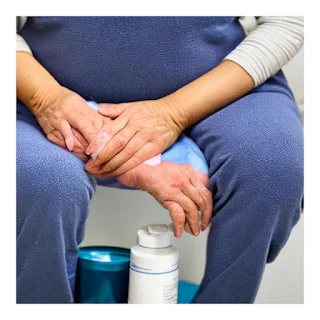Essential Hygiene & Skin Care for Incontinence Management
Incontinence is a condition where an individual experiences involuntary loss of urine or feces. This can occur due to various reasons, including age, medical conditions, or physical trauma. Individuals with incontinence face a higher risk of developing skin irritation, infections, and other skin-related issues due to constant exposure to moisture and bacteria. Proper hygiene and skin care practices are vital to prevent these complications and maintain skin health.
Types of Incontinence
- Urinary Incontinence: The involuntary loss of urine, often due to weakened pelvic floor muscles, nerve damage, or medical conditions like diabetes or multiple sclerosis.
- Fecal Incontinence: The involuntary loss of feces, which can be caused by damage to anal sphincter muscles, nerve damage, or conditions like Crohn's disease or rectal cancer.
- Mixed Incontinence: A combination of urinary and fecal incontinence, which can be caused by nerve damage, medication side effects, or conditions like Parkinson's disease.
Causes of Incontinence
Incontinence can result from various factors, including age, pregnancy, childbirth, medical conditions, side effects of medications, obesity, and neurological diseases. Identifying the underlying cause is essential for developing an effective treatment plan.
Skin Care in Incontinence
Skin Care Products:
Using pH-balanced cleansers, moisturizers, and skin protectants can help prevent skin irritation and infections in individuals with incontinence.
Proper Cleaning Techniques:
Gently cleaning the affected area with a mild cleanser and warm water immediately after incontinence episodes is crucial. Ensure the area is dried thoroughly to prevent irritation.
Barrier Creams and Ointments:
These products form a protective layer over the skin, helping to prevent moisture damage. Zinc oxide-based creams are commonly recommended for this purpose.
Wound Care for Individuals with Incontinence
Prolonged moisture exposure can lead to skin breakdown and pressure ulcers. Proper skin care, including keeping wounds clean and using appropriate dressings, is essential to prevent infection and promote healing.
Hygiene Practices in Incontinence
Maintaining a Clean and Dry Environment:
Regularly changing incontinence products, using moisture-wicking fabrics, and applying protective bedding can help prevent skin irritation and infections.
Proper Use of Incontinence Products:
Choosing the right product and ensuring a proper fit can prevent skin breakdown. Products should be changed immediately after incontinence episodes.


